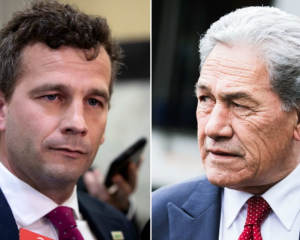The case of a man with autism locked in isolation for five years shows something has gone "dreadfully wrong" with the system, an autism advocate says.
The New Zealand Herald today revealed Ashley Peacock (37) has been locked away in the "de-escalation" wing of the Tawhirimatea unit in Porirua, near Wellington, under a compulsory order of the Mental Health Act, despite experts warning it is in breach of human rights.
The Ombudsman, the Human Rights Commission, advocates, lawyers and autism experts have for years been arguing for Mr Peacock to be released.
But he remains in isolation, spending half his time locked in a cell-like room, allowed outside for only 90 minutes a day.
Autism advocate Wendy Duff, who has been working with Mr Peacock's family in recent months, told Newstalk ZB this morning he was clearly not in the right place.
"I can't see any advantage to him being there. He's clearly not getting a full therapeutic team behind him, such as behavioural therapy or maybe correcting medication to try and improve his situation, and maybe discharge him from that environment into something that will be much more humane."
Ms Duff questioned whether a lack of training and funding was behind Ashley's situation.
"It's easier to put somebody in a caged environment with less staff around," she said.
"I think something has gone dreadfully wrong and I think that's half of the point - nobody really knows how to unravel what has gone wrong. I think lack of funding is the main criteria as to why he's not in the correct environment - him and many others."
Ms Duff said there needed to be a close look at why he was still in care when there had been many attempts by the Ombudsman and the Health and Disability Commissioner to try to get him out.
"I would suggest he's discharged out to a residential-type home out in a quiet environment with trained staff who know how to care for him," she said.
She said Mr Peacock's case was not isolated. At least 10 other people with autism are in a similar situation.
Ms Duff is calling for more funding to help adults with autism to keep busy so they don't get to the point where they might become violent, angry or frustrated.












